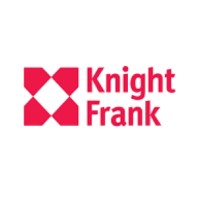Nigeria’s commitment to combating climate change faces a critical challenge: the unchecked release of methane, a potent greenhouse gas, from its oil and gas operations. The Executive Secretary of the Nigeria Extractive Industries Transparency Initiative (NEITI), Orji Ogbonnaya, has issued a stark warning, declaring that Nigeria’s climate pledges ring hollow without urgent action to address methane pollution. He stressed the significant economic and environmental consequences of inaction, emphasizing that methane’s potency as a greenhouse gas far surpasses that of carbon dioxide, making its control paramount for achieving climate goals. This requires a paradigm shift in how methane emissions are managed across the extractive industries, moving beyond the current “business-as-usual” approach.
Ogbonnaya highlighted the substantial financial losses associated with gas flaring, a major source of methane emissions. He estimated potential losses exceeding $2.29 billion over five years if current flaring levels persist. This lost revenue represents a significant setback for national development, as it could be channeled towards critical sectors like healthcare, education, infrastructure, and climate resilience programs. He underscored the urgent need for regulatory reforms, enhanced transparency, and stricter enforcement across the oil and gas value chain to curb methane emissions. This call for action aligns with the global push for methane reduction, recognizing its crucial role in mitigating climate change.
NEITI is taking concrete steps to integrate climate reporting into its operations. The organization has committed to including emissions data in all future industry reports, signaling a new era of accountability and transparency. This policy shift reflects the growing recognition of the interconnectedness between extractive industries and climate change. NEITI’s newly adopted Energy Transition and Climate Accountability Framework will guide its efforts in emissions tracking, just transition planning, and climate governance. This framework provides a structured approach to addressing the complex challenges posed by climate change within the context of Nigeria’s extractive sector.
The dialogue organized by the Natural Resource Governance Institute (NRGI) brought together key stakeholders from government, civil society, and the private sector to discuss strengthening public accountability and compliance in methane emission management. The focus on multi-stakeholder engagement underscores the importance of collaborative efforts in tackling this complex issue. Ogbonnaya emphasized the necessity of a robust and enforceable methane governance regime aligned with international standards, highlighting that regulatory compliance and accountability are not optional but crucial for public health, investor confidence, and Nigeria’s future in international fossil fuel trade. This underlines the significant implications of methane management for Nigeria’s economic and international standing.
NEITI’s 2023 audit report revealed that Nigeria flared 183.4 billion standard cubic feet of gas in 2023, representing a marginal reduction compared to the previous year. While any reduction is positive, the scale of gas flaring remains substantial, signifying the urgent need for more effective mitigation measures. The economic value of the flared gas in 2023 alone amounted to approximately $458.52 million, a significant loss of potential revenue. This highlights the economic imperative for addressing gas flaring and underscores the potential benefits of capturing and utilizing this valuable resource.
Looking ahead, NEITI will expand its focus to encompass methane monitoring in solid minerals and gas audits, publish annual methane emissions scorecards for extractive companies, advocate for penalties and incentives tied to emission performance, and engage the judiciary for legal enforcement of environmental compliance. This comprehensive approach reflects NEITI’s commitment to addressing methane emissions across various sectors and leveraging multiple tools to drive change. Furthermore, it emphasizes the importance of holding companies accountable for their environmental performance and ensuring compliance with regulations. The dialogue also highlighted the potential consequences of inaction for Nigeria’s access to European energy markets, given the EU’s impending methane emissions standards. This underscores the urgency of implementing reforms to align with international standards and maintain market access.













